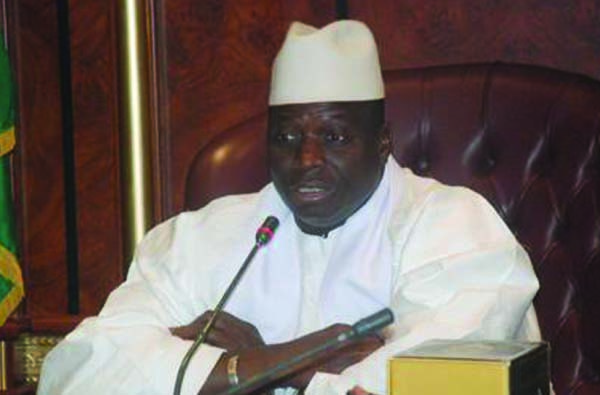
The new legislative programme of the Gambia government is as follows:
The Gambia budget management accountability Act is in the process of being amended to take into account recent reforms in accounting and internal audit systems, as well as debt management operations in the area of lease finance agreement, on-lending arrangements with public enterprises, and government guaranteed debts.
The amendment bill soon to be introduced “will provide greater control in the use of public resources and funds, by seeking to address the critical needs of efficiency and effectiveness of financial management in government through the implementation of modern financial management practices”.
In the area of public procurement, the public procurement authority Act is to be amended to separate the policy and regulatory functions of the GPPA; create an independent complaints review board, and strengthen the definition of sanctions and fines with the Act.
In addition to the creation of a procurement cadre in the civil service, “these legislative and administrative changes will make public procurement simpler, more transparent and accountable with adequate checks and balances consistent with national laws and best practice.”
Following the setting up of the copyright collecting society board, in 2014 the ministry of Culture will create the administrative organ of the collecting society, in order to start the process in The Gambia, for the first time, of collecting and distributing royalties to artistes.
The government is also “poised to introduce ‘client charters’ for all sectors for greater performance accountability, citizen engagement and responsiveness to all government programs. The charter will require all sectors to make public their key mandates and services provided.
“In this new paradigm shift in public service delivery, every sector will be held accountable for the expected outcomes they owe to their clientele.
‘Sector need to be able to explain how long it takes to clear a container, to secure a passport, to register a business, and what is the emergency response time for the police, fire and rescue services, for instance.”
The pension bill will be brought to the assembly for enactment, during this legislative year, as part of the civil service reform programme, which includes pay and pension systems review.
“The reform of the pay and pension systems is expected to boost our capacity as a government to attract and retain quality human capital for effective service delivery”.
President Jammeh also announced the revival of the civil service revolving loan scheme, for which D24.5 million is available for civil servants to build houses, purchase cars and address other personal needs.
Jammeh also announced that, with regards to the country’s untapped petroleum resources, the government “will look for strategic partnership in the form of joint ventures with friendly governments around the world.”
Meanwhile, a bill will be brought before the National Assembly to provide a legal framework for the creation and operations of the Gambia national petroleum corporation, GNPC, whose new headquarters building is under construction at the Brusubi roundabout.
The ministry of Justice in Banjul in 2014 will bring new bills to the National Assembly, including amendments to the criminal code, an amendment to the alternative dispute resolution Act and the new Rent Bill.
The biodiversity and wildlife bill 2013 will also be presented to the assembly this year.
The national environment agency and the court will work together to ensure effective enforcement of the anti-lettering regulations and other environmental laws through the “environmental court”.
Concerning youth affairs, the government will review the youth and sports development policy instruments, including the national youth service scheme Act of 1999, review and amend the national youth council Act 2000, review and amend the national sports council Act 2000 .
A national conference of governors and mayors will be established this year, as well as a national council of alkalolu.
In terms of land administration, the government will soon reform existing laws and regulations, such as the physical planning and development control Act 1991, the state lands Act 1991 and the survey Act 1991, to help address rge frequent land disputes and control speculative practices relating to land. The lands commission Act of 1991 will also be revised.
Monday’s state opening of the National Assembly was also an opportunity for President Jammeh to announce the government’s policies in various sectors as well as its development activities and plans for the new year and beyond.
Thus, he declared that: “Government through the support of our genuine friends would put, in addition to Sapu and Jahaly Pachar, half a million hectares under rice cultivation by end 2015; and the attendant result would ensure a definitive end to rice importation in 2016…We shall be growing what we eat finally”.
Referring to the past 19 years of his rule, Jammeh said, “We have a lot to celebrate; a lot to be proud of”, and further declared that ‘in the next six years we will witness even greater progress in our socio-economic development”.
President Jammeh also recalled the “rapid development through numerous projects that started during the Transition Years (the two-year transition period to civilian rule, following the military coup that brought him to power in July 1994)”, and announced that “another set of Transition Projects would not only be announced, but launched very soon this year”.
Noting that this year’s state opening coincides with the 20th anniversary of his coup, Jammeh said, “overall, we are proud of our achievements over the past nineteen years”.
Mr Njie Baldeh covered the State Opening of the National Assembly for the Point Newspaper



